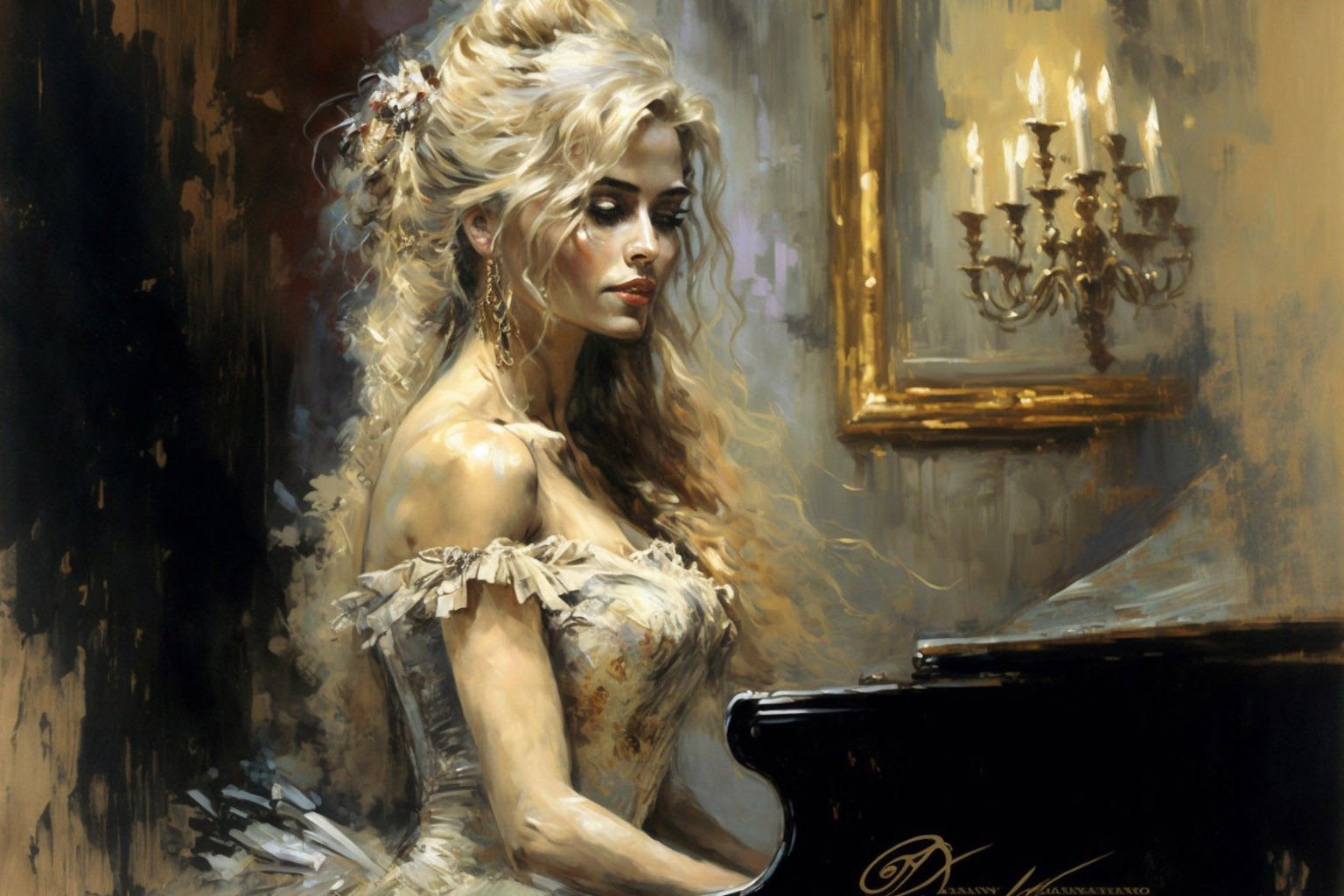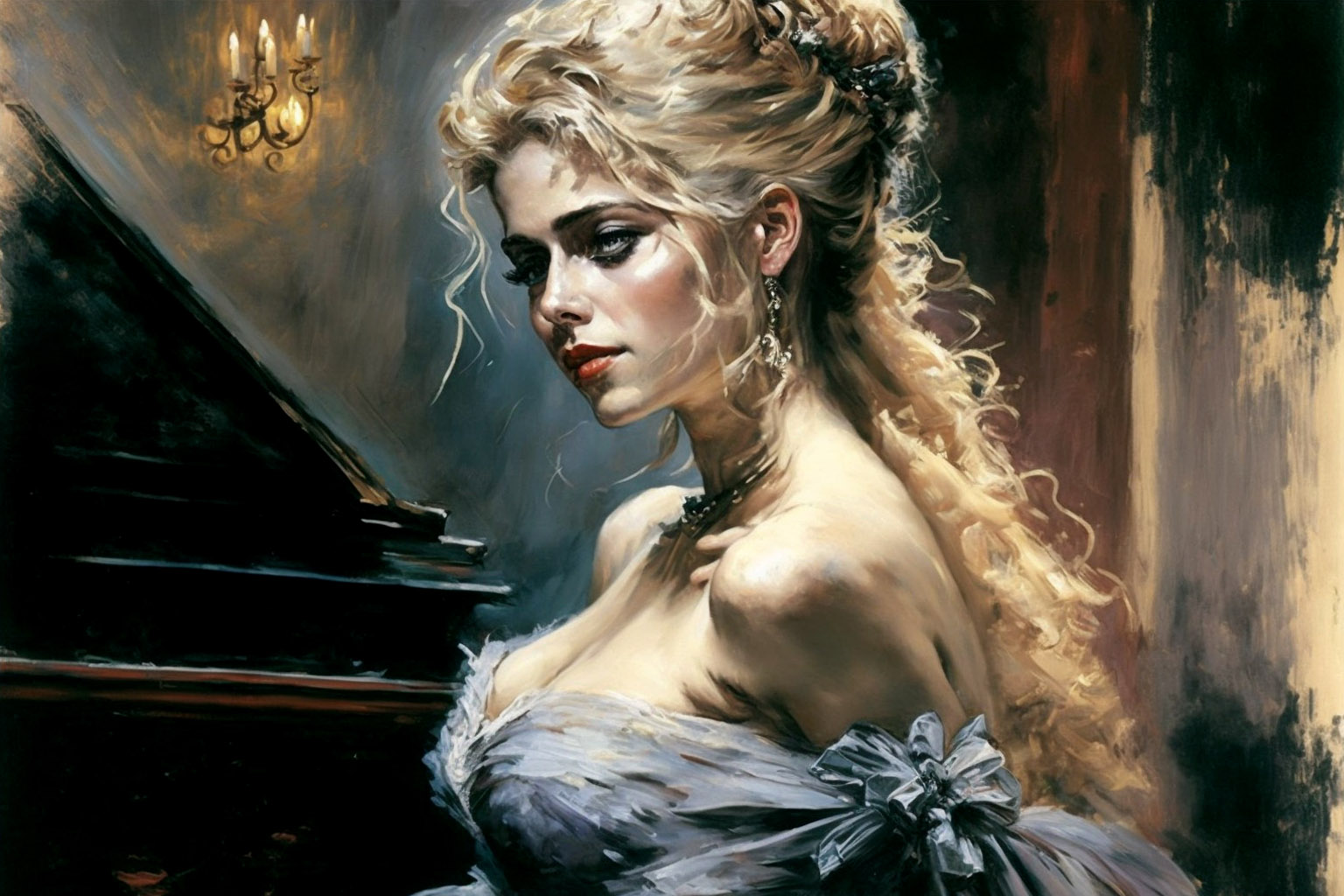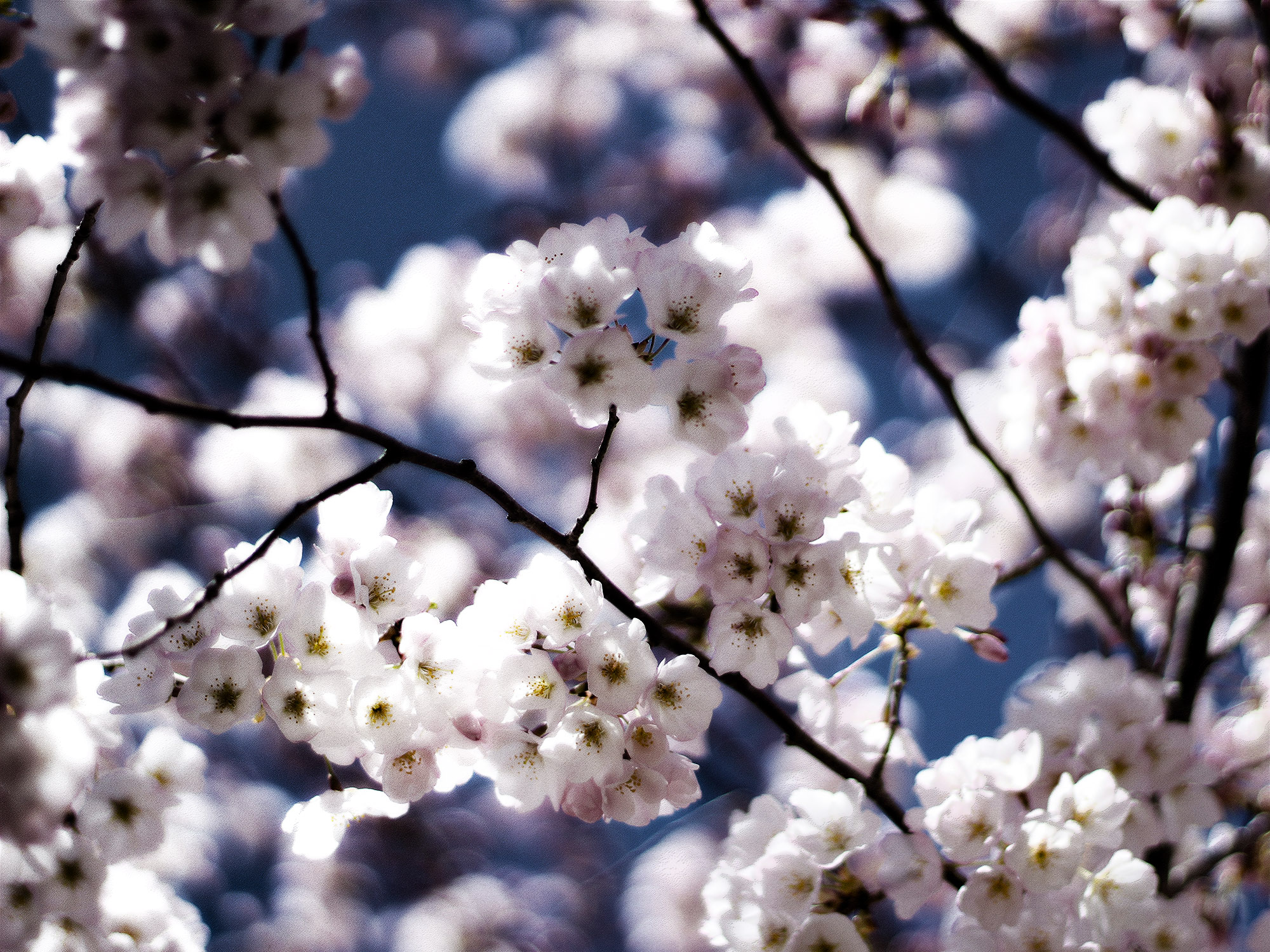
Or quand le pianiste eut joué, Swann fut plus aimable encore avec lui qu’avec les autres personnes qui se trouvaient là. Voici pourquoi :
L’année précédente, dans une soirée, il avait entendu une œuvre musicale exécutée au piano et au violon. D’abord, il n’avait goûté que la qualité matérielle des sons sécrétés par les instruments. Et ç’avait déjà été un grand plaisir quand au-dessous de la petite ligne du violon mince, résistante, dense et directrice, il avait vu tout d’un coup chercher à s’élever en un clapotement liquide, la masse de la partie de piano, multiforme, indivise, plane et entrechoquée comme la mauve agitation des flots que charme et bémolise le clair de lune. Mais à un moment donné, sans pouvoir nettement distinguer un contour, donner un nom à ce qui lui plaisait, charmé tout d’un coup, il avait cherché à recueillir la phrase ou l’harmonie — il ne savait lui-même — qui passait et lui avait ouvert plus largement l’âme, comme certaines odeurs de roses circulant dans l’air humide du soir ont la propriété de dilater nos narines. Peut-être est-ce parce qu’il ne savait pas la musique qu’il avait pu éprouver une impression aussi confuse, une de ces impressions qui sont peut-être pourtant les seules purement musicales, inétendues, entièrement originales, irréductibles à tout autre ordre d’impressions. Une impression de ce genre, pendant un instant, est pour ainsi dire sine materia. Sans doute les notes que nous entendons alors tendent déjà, selon leur hauteur et leur quantité, à couvrir devant nos yeux des surfaces de dimensions variées, à tracer des arabesques, à nous donner des sensations de largeur, de ténuité, de stabilité, de caprice. Mais les notes sont évanouies avant que ces sensations soient assez formées en nous pour ne pas être submergées par celles qu’éveillent déjà les notes suivantes ou même simultanées. Et cette impression continuerait à envelopper de sa liquidité et de son « fondu » les motifs qui par instants en émergent, à peine discernables, pour plonger aussitôt et disparaître, connus seulement par le plaisir particulier qu’ils donnent, impossibles à décrire, à se rappeler, à nommer, ineffables — si la mémoire, comme un ouvrier qui travaille à établir des fondations durables au milieu des flots, en fabriquant pour nous des fac-similés de ces phrases fugitives, ne nous permettait de les comparer à celles qui leur succèdent et de les différencier. Ainsi à peine la sensation délicieuse que Swann avait ressentie était-elle expirée, que sa mémoire lui en avait fourni séance tenante une transcription sommaire et provisoire, mais sur laquelle il avait jeté les yeux tandis que le morceau continuait, si bien que, quand la même impression était tout d’un coup revenue, elle n’était déjà plus insaisissable. Il s’en représentait l’étendue, les groupements symétriques, la graphie, la valeur expressive ; il avait devant lui cette chose qui n’est plus de la musique pure, qui est du dessin, de l’architecture, de la pensée, et qui permet de se rappeler la musique. Cette fois il avait distingué nettement une phrase s’élevant pendant quelques instants au-dessus des ondes sonores. Elle lui avait proposé aussitôt des voluptés particulières, dont il n’avait jamais eu l’idée avant de l’entendre, dont il sentait que rien autre qu’elle ne pourrait les lui faire connaître, et il avait éprouvé pour elle comme un amour inconnu.
After the pianist had played, Swann felt and shewed more interest in him than in any of the other guests, for the following reason:

The year before, at an evening party, he had heard a piece of music played on the piano and violin. At first he had appreciated only the material quality of the sounds which those instruments secreted. And it had been a source of keen pleasure when, below the narrow ribbon of the violin-part, delicate, unyielding, substantial and governing the whole, he had suddenly perceived, where it was trying to surge upwards in a flowing tide of sound, the mass of the piano-part, multiform, coherent, level, and breaking everywhere in melody like the deep blue tumult of the sea, silvered and charmed into a minor key by the moonlight. But at a given moment, without being able to distinguish any clear outline, or to give a name to what was pleasing him, suddenly enraptured, he had tried to collect, to treasure in his memory the phrase or harmony–he knew not which–that had just been played, and had opened and expanded his soul, just as the fragrance of certain roses, wafted upon the moist air of evening, has the power of dilating our nostrils. Perhaps it was owing to his own ignorance of music that he had been able to receive so confused an impression, one of those that are, notwithstanding, our only purely musical impressions, limited in their extent, entirely original, and irreducible into any other kind. An impression of this order, vanishing in an instant, is, so to speak, an impression sine materia. Presumably the notes which we hear at such moments tend to spread out before our eyes, over surfaces greater or smaller according to their pitch and volume; to trace arabesque designs, to give us the sensation of breadth or tenuity, stability or caprice. But the notes themselves have vanished before these sensations have developed sufficiently to escape submersion under those which the following, or even simultaneous notes have already begun to awaken in us. And this indefinite perception would continue to smother in its molten liquidity the motifs which now and then emerge, barely discernible, to plunge again and disappear and drown; recognised only by the particular kind of pleasure which they instil, impossible to describe, to recollect, to name; ineffable;–if our memory, like a labourer who toils at the laying down of firm foundations beneath the tumult of the waves, did not, by fashioning for us facsimiles of those fugitive phrases, enable us to compare and to contrast them with those that follow. And so, hardly had the delicious sensation, which Swann had experienced, died away, before his memory had furnished him with an immediate transcript, summary, it is true, and provisional, but one on which he had kept his eyes fixed while the playing continued, so effectively that, when the same impression suddenly returned, it was no longer uncapturable. He was able to picture to himself its extent, its symmetrical arrangement, its notation, the strength of its expression; he had before him that definite object which was no longer pure music, but rather design, architecture, thought, and which allowed the actual music to be recalled. This time he had distinguished, quite clearly, a phrase which emerged for a few moments from the waves of sound. It had at once held out to him an invitation to partake of intimate pleasures, of whose existence, before hearing it, he had never dreamed, into which he felt that nothing but this phrase could initiate him; and he had been filled with love for it, as with a new and strange desire.
D’un rythme lent elle le dirigeait ici d’abord, puis là, puis ailleurs, vers un bonheur noble, inintelligible et précis. Et tout d’un coup, au point où elle était arrivée et d’où il se préparait à la suivre, après une pause d’un instant, brusquement elle changeait de direction, et d’un mouvement nouveau, plus rapide, menu, mélancolique, incessant et doux, elle l’entraînait avec elle vers des perspectives inconnues. Puis elle disparut. Il souhaita passionnément la revoir une troisième fois. Et elle reparut en effet, mais sans lui parler plus clairement, en lui causant même une volupté moins profonde. Mais rentré chez lui il eut besoin d’elle, il était comme un homme dans la vie de qui une passante qu’il a aperçue un moment vient de faire entrer l’image d’une beauté nouvelle qui donne à sa propre sensibilité une valeur plus grande, sans qu’il sache seulement s’il pourra revoir jamais celle qu’il aime déjà et dont il ignore jusqu’au nom.
With a slow and rhythmical movement it led him here, there, everywhere, towards a state of happiness noble, unintelligible, yet clearly indicated. And then, suddenly having reached a certain point from which he was prepared to follow it, after pausing for a moment, abruptly it changed its direction, and in a fresh movement, more rapid, multiform, melancholy, incessant, sweet, it bore him off with it towards a vista of joys unknown. Then it vanished. He hoped, with a passionate longing, that he might find it again, a third time. And reappear it did, though without speaking to him more clearly, bringing him, indeed, a pleasure less profound. But when he was once more at home he needed it, he was like a man into whose life a woman, whom he has seen for a moment passing by, has brought a new form of beauty, which strengthens and enlarges his own power of perception, without his knowing even whether he is ever to see her again whom he loves already, although he knows nothing of her, not even her name.

